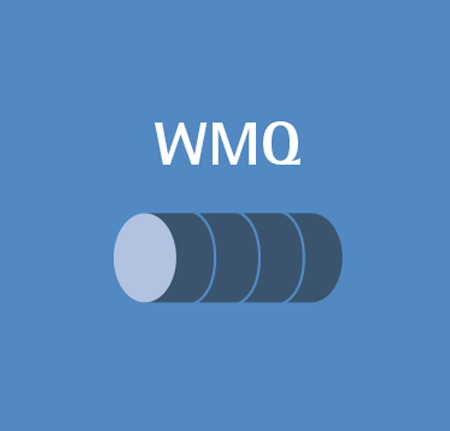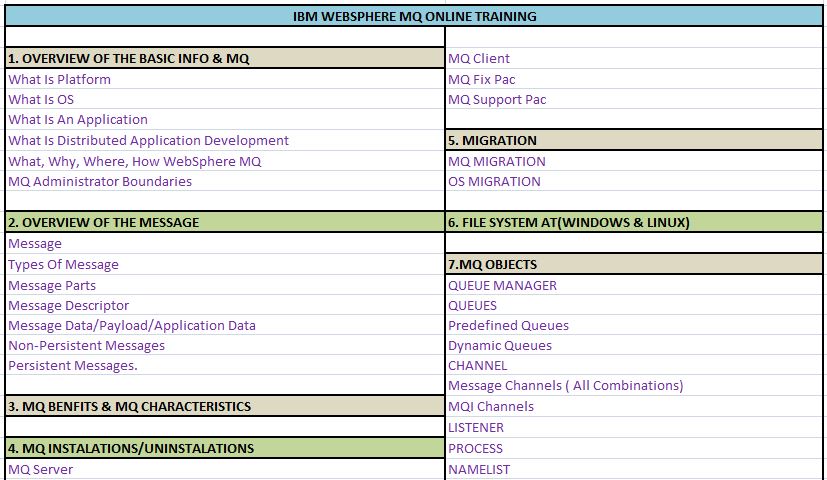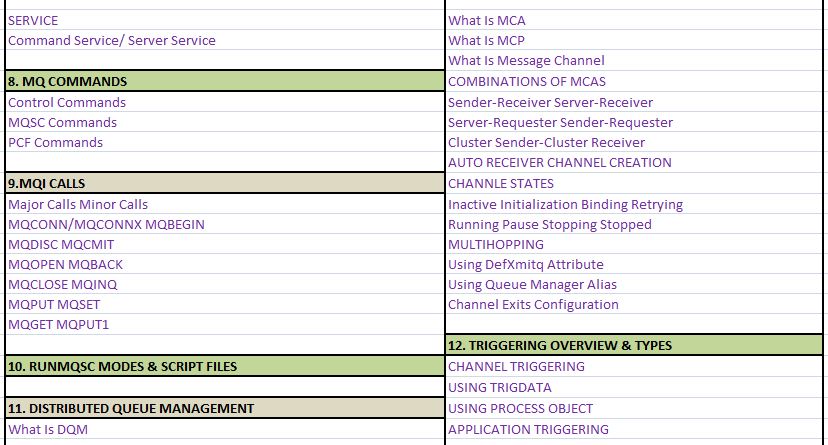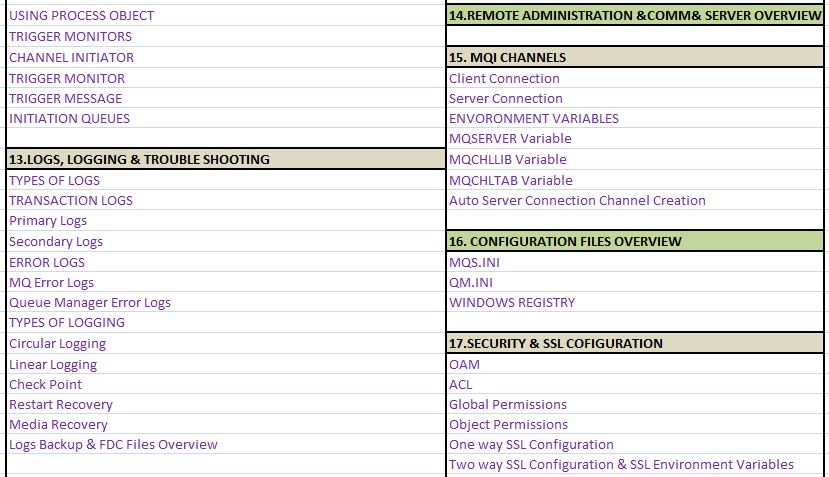
Introduction of IBM Websphere MQ Training:
IBM Websphere MQ training at IdesTrainings will give you the detailed information about the course. IBM Websphere MQ training is provided by our IdesTrainings. We are providing the best quality IBM Websphere MQ training at a reasonable price. Our trainers are most experienced on IBM Websphere MQ training. Before going to the IBM Websphere MQ course, let’s have a look at the basics of IBM Websphere MQ training. IdesTrainings provide IBM Websphere MQ training by our experts. IBM Websphere MQ training offers you all the concepts regarding this course. We have trainers from various states of India and we will provide you the complete course. At IdesTrainings, they provide you the deep knowledge regarding the IBM Websphere MQ Online, Corporate Training Course. We also provide you the IBM Websphere MQ Online course training materials during the training.
IBM Websphere MQ Online training Outline Details:
- Mode of Training: IBM Websphere MQ training / IBM Websphere MQ corporate training / IBM Websphere MQ training.
- Program Duration: The duration of the program can be optimized to 25 hours.
- Materials: Yes, we are providing materials for best IBM Websphere MQ training.
- Course Fee: Anyone interested can register in our website, so that we will contact you as soon as possible.
- Trainer Experience: 13+ years.
IBM WEBSPHERE MQ TRAINING COURSE CONTENT




Overview of IBM Websphere MQ training:
IdesTrainings are one of the best and famous online training in India. We are providing the best quality online training at the best price and the best Top IBM Websphere MQ Courses Online training by IdesTrainings. For any reason if the student misses the session we will provide the backup sessions. According to student flexibility we will provide online training. We have highly experienced trainers for IBM Websphere MQ course training. They have 13 years of experience in IBM Websphere MQ course training. Idestrainings Online team will be available at anytime to solve any queries regarding the IBM Websphere MQ course training.
The full form of IBM Websphere MQ is IBM Websphere Message Queue and it is also known as IBM WMQ. IBM Websphere MQ is one of the servers that maintain the flow of messages from one end to another end. With the help of this server the exchange of the data or messages can be done without any delay.
Message Queuing (MQ):
Applications that are designed and written with the help of application programming interface are known as Message Queuing Applications.
Messaging: The communication of the programs by sending the data in the form of messages is known as Messaging.
Queuing: In storage, the messages are placed in a Queue and allow the programs to run independently without any logical connections. These programs can run at different speeds in different locations.
Message Queue is also known as Queue. Queue’s physical nature totally depends on the operating system on which the Queue manager is running. The maintenance of the queue is managed by the queue manager.
Different types of Message Queue:
There are two types of Message Queue. They are Point-to-Point Messaging and Publish/Subscribe Messaging.
- Point-to-Point Messaging:
In Point-to-Point Messaging, before sending an application the sending application must known the information about the receiving application.
- Publish/Subscribe Messaging:
In publishing application, there are different types of applications they are many applications, one application and no interested applications. In this messaging an interested application is known as Subscriber. In Publish/Subscribe messaging, the sending application does not need to known about the receiving application.
Features of Message Queuing:
Some of the important features of applications of Message Queuing are
- There are no connections between the programs.
- Communication between the programs does not depend upon the time.
- Work can also be carried out by the small programs as well as the self-contained programs.
- Events drive the communication.
- Priority to a message is given by the applications.
Message Driven Processing:
Message Driven Processing is based on a distributed computing platform. It is a Service-Oriented Architecture (SOA) scheme. If the messages arrive on a queue than triggering application is used.
Message:
Message is defined as a string of bytes and this string of bytes are meaningful to the applications that we use it. Messages are defined as a communication between the application programs because it transfers the information from one application to other applications. These applications can run either on the same platform or on the different platforms.
Parts of IBM Websphere MQ messages:
There are two parts of IBM Websphere MQ messages. They are Application data and a message descriptor.
Application data: Application program defines the content of the application data and also the structure of the Application data.
Message Descriptor: Message descriptor is used to identify the message and it is also contains additional control information. And the Message Descriptor format is defined by Websphere MQ.
The best IBM Websphere MQ certification course Training is provided by our experts. IBM Websphere MQ course training certification is also provided and more than 70+ students are trained in this IBM Websphere MQ Courses. We have strong academic background in IBM Websphere MQ course at IdesTrainings. If you have any queries regarding the IBM Websphere MQ course, please call the help desk at anytime and we will get in touch. Our Idestrainings also provide the classroom training at client premises at Noida, Bangalore, Gurgaon, Hyderabad, Mumbai, Delhi and Pune.
MQMD structure or Message Queuing Message Descriptor structure: MQMD structure is defined as control information and this control information accompanies the application data and this takes place at when a message travels between the sending applications and the receiving applications.
Important fields of MQMD:

Some of the important fields of MQMD are as follows
- StrucID: StrucID is known as Structure identifier.
- Version: Version is known as the Structure version number.
- MsgTyp: MsgTyp is known as Message Type.
- Expiry: Expiry is known as Message lifetime.
- Format: Format is known as Format of message.
Message Context:
Message Context information helps the application to retrieve the messages and to find out the originator of the message. For generating the report messages such as to confirm on delivery and expiry, the user context is used.
Retrieving application is used to
- Check the correct level of the authority of the sending application.
- Performing the accounting function.
- For keeping the audit trail to all the messages.
The context field of the message descriptor stores all the information of the context and this information is stored in Identity context information, Origin context information and User context information.
Types of messages of IBM Websphere MQ:

There are four types of messages of IBM Websphere MQ. They are Datagram, Request messages, Reply messages and Report messages.
- Datagram Messages: For transferring the information among applications we use Datagram messages. If we don’t want to receive the message from the application than we use Datagram.
- Request Messages: For transferring the information among applications we also use Request Messages. If we want to receive the request message than we use Request messages.
- Reply Messages: For transferring the information among applications we use Reply Messages. When we reply to another message than we use a Reply Messages.
- Report Messages: When the application is not expecting than the Report messages can be generated at any time and they can also arrive on a queue.
Learn Websphere training in our IBM Websphere MQ Training
Websphere:
Websphere is one of the tools of Java and it is the product of the IBM middleware technology it also has run time components and tools that can create applications. These applications run on Websphere Application Server (WAS).
Components of Websphere:
The important components of Websphere are
- Websphere Application Server: Websphere Application Server is also known as WAS. WAS is the connection between website users and Java servlets.
- Data-Server: Data-Server is used for data persistence.
- Web-Server: HTTP service is provided by Web-Server.
These are the some important components of the Websphere and the detailed information of the Websphere training is explained in our IBM Websphere MQ training at our Idestrainings.
Learn about IBM Websphere App Server Training in our IBM Websphere MQ course training:
IBM WAS: IBM WAS is known as IBM Websphere Application Server. IBM WAS is a software framework and it acts as a web application server and it deals with Java based applications.
Types of Websphere Application Server:
Some of the important types of Websphere Application Server are
- Application server: An application server runs only one node and this one node can support many application servers.
- Node Agent: Node agent is created and this node is installed. To perform the administrative activities, node agent works with deployment manager.
- Deployment manager: To manage all the servers in a distributed topology the deployment manager works with the node agent.
These are some of the basics of IBM Websphere App Server Training and detailed information about IBM Websphere App Server Training are explained in our IBM Websphere MQ course training.
Conclusion of IBM Websphere MQ:
IBM Websphere MQ course training is provided by one of the dominant online training cloud for many software courses IdesTrainings. We are providing IBM Websphere MQ course training through online from India for low cost and for your flexible time slots with our trainers. Fresher who just got job and students who are willing to get job in IBM Websphere MQ course training both can take this training through online. For more details visit our website.

